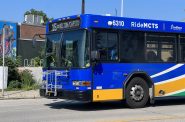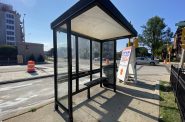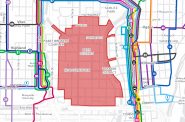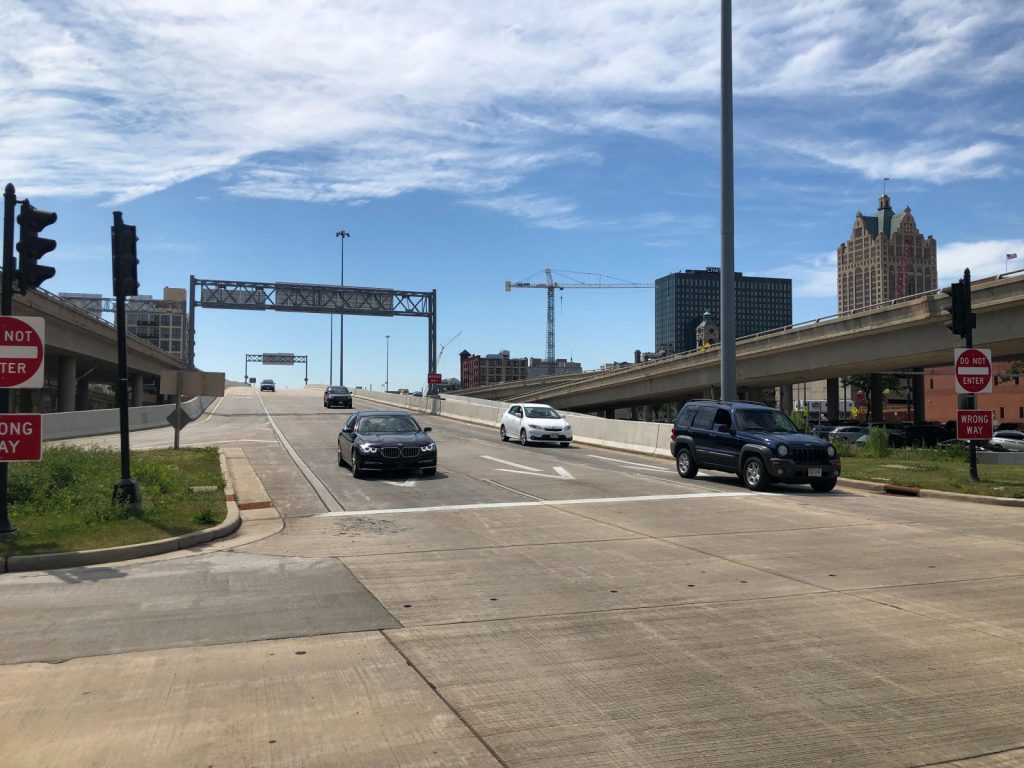Less Driving Means Less Gas Tax Revenue
Highway funding will be hard hit. Here’s how to replace the gas tax.
As people hunker down at home, with few places to go but the grocery store, congestion has all but disappeared from our highways and freeways. Because people aren’t driving much, gasoline sales are projected to decrease by more than half during the pandemic.
That means revenue from per-gallon gas taxes also will plummet, and that worries state transportation departments, which rely primarily on gas taxes to fund their highway budgets.
How big of a problem could Wisconsin be facing?
Before the COVID-19 crisis, the state Legislative Fiscal Bureau projected the motor fuel tax to generate $1.08 billion in 2019-’20. That’s more than half of the Wisconsin Department of Transportation’s total annual revenue of $1.99 billion.
In March, April and May of 2019, the state collected $84 million, $82 million and $85 million in gas taxes, respectively, according to the Wisconsin Department of Revenue. Assuming gas sales decrease by half this March and April and by 20% in May, that would mean a $100 million deficit in Wisconsin’s transportation budget. If the slowdown continues into the summer, when revenues typically rise, it could be disastrous.
A better way to fund roads
The per-gallon gas tax had its centennial last year, having been invented by Oregon in 1919. But instead of celebrating its longevity, we should be planning its funeral. Here’s why:
Like most developed countries, our federal government has policies that will doom gas-tax revenues over the next several decades.
Newly announced federal standards require new cars to get an average of 47 mpg by 2025. As fuel-stingy new cars replace gas-guzzling old cars over a decade or two, the amount of gas sold will be in a long-term decline. Moreover, the world’s automakers are devoting major R&D spending to practical, affordable electric cars that use no gas at all.
Forecasts like these have led many to conclude that we need to replace the per-gallon tax with another way to fund our roads. A national commission in 2009 reviewed more than a dozen options and concluded that the best alternative is charging per mile driven rather than per gallon consumed.
Over the past decade, Congress has offered states modest grants to test per-mile charges, and more than a dozen pilot projects have been carried out. The projects simulate a per-mile charge of 1.5 to 2 cents per mile, enough to replace a state’s gas tax. They also offer motorists alternative ways to have their total miles reported, including annual odometer readings or an on-board gadget that simply accumulates miles driven (not where or when) and uploads the totals periodically.
The transition could begin on Interstates that are being widened or rebuilt. Transponders or license-plate reading could determine the number of miles traveled and could calculate the gallons of gas used. The new charge would be a replacement for the gas tax, not in addition to it. This policy is already in place on the New York State Thruway, where truckers receive rebates on fuel taxes on this tolled Interstate.
Before another crisis hits and gas-tax revenues shrink further, the Wisconsin Department of Transportation should start addressing the need to replace the state gas tax. The future of the state’s highways is at stake.
Robert W. Pool Jr. is director of transportation policy at Reason Foundation and a Badger Institute visiting fellow. Permission to reprint is granted as long as the author and Badger Institute are properly cited.
Op-Ed
-
Unlocking Milwaukee’s Potential Through Smart Zoning Reform
 Jul 5th, 2024 by Ariam Kesete
Jul 5th, 2024 by Ariam Kesete
-
We Energies’ Natural Gas Plans Are A Mistake
 Jun 28th, 2024 by John Imes
Jun 28th, 2024 by John Imes
-
Milwaukee Needs New Kind of School Board
 Jun 26th, 2024 by Jordan Morales
Jun 26th, 2024 by Jordan Morales
Transportation
-
MCTS Adds 28 New Buses
 Jul 13th, 2024 by Graham Kilmer
Jul 13th, 2024 by Graham Kilmer
-
MCTS Designing New Bus Shelters
 Jul 10th, 2024 by Graham Kilmer
Jul 10th, 2024 by Graham Kilmer
-
MCTS Updates RNC Bus Detours To Better Serve Downtown, Riders
 Jul 9th, 2024 by Jeramey Jannene
Jul 9th, 2024 by Jeramey Jannene





















Let’s call this idea what it is. It is a toll to use roads that are in poor condition. It’s a regressive tax that will unfairly burden our citizens already struggling to make ends meet.
What we need a higher investment in Public transportation. By serving all citizens with safe, request, and comprehensive service to replace automobile dependence.
The state legislatures have already created an almost unfixable situation concerning our roadways. By not funding road repair, and overbuilt new or improved existing roadways beyond their needed capacity, they have left our roads in terrible condition. The capital required to rectify this is unbearably high.
Time to downsize the highways and up size mass transit. Only repair or add light rail instead of rebuilding concrete/asphalt roads.